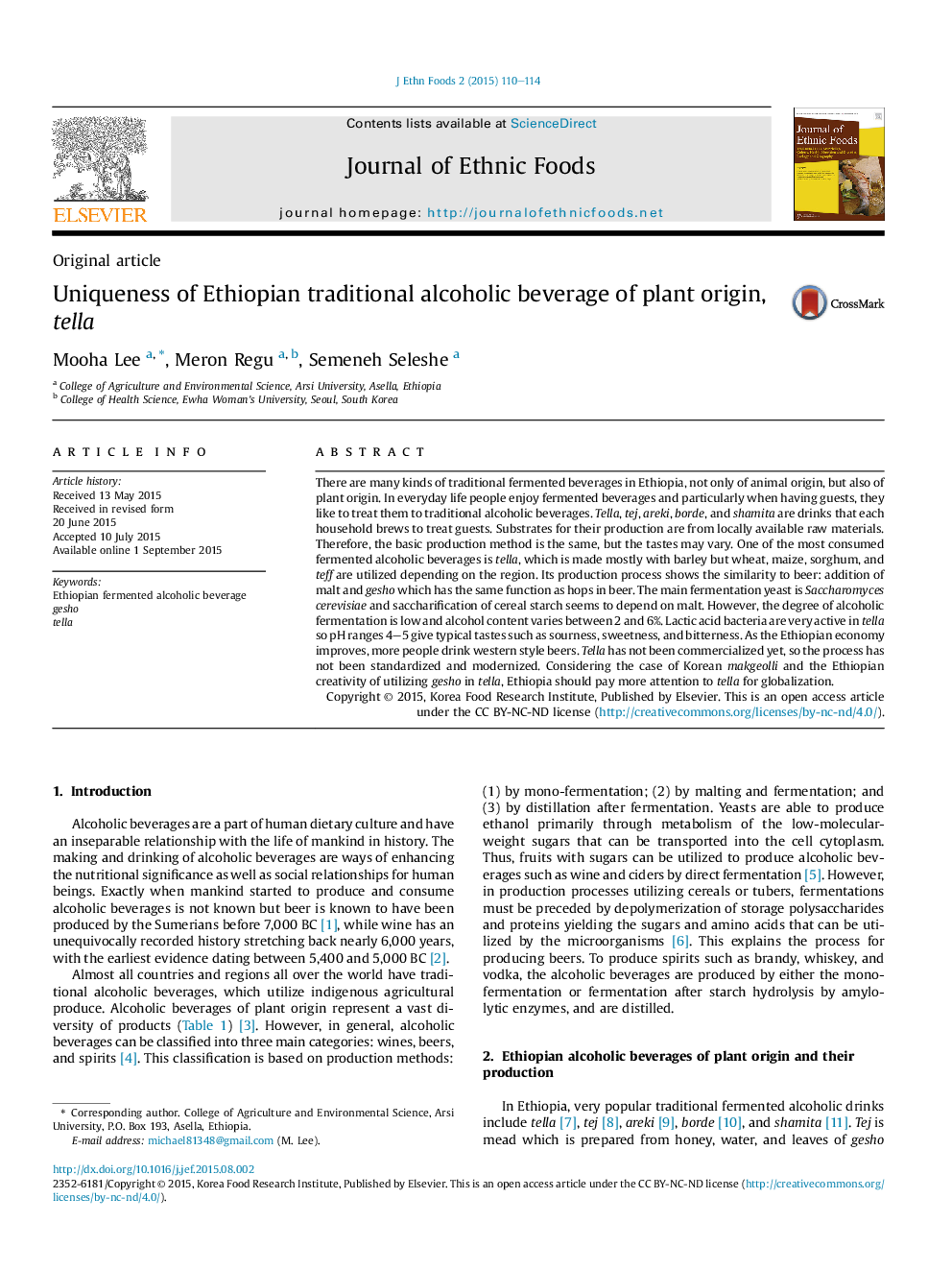| کد مقاله | کد نشریه | سال انتشار | مقاله انگلیسی | نسخه تمام متن |
|---|---|---|---|---|
| 2692714 | 1143450 | 2015 | 5 صفحه PDF | دانلود رایگان |
There are many kinds of traditional fermented beverages in Ethiopia, not only of animal origin, but also of plant origin. In everyday life people enjoy fermented beverages and particularly when having guests, they like to treat them to traditional alcoholic beverages. Tella, tej, areki, borde, and shamita are drinks that each household brews to treat guests. Substrates for their production are from locally available raw materials. Therefore, the basic production method is the same, but the tastes may vary. One of the most consumed fermented alcoholic beverages is tella, which is made mostly with barley but wheat, maize, sorghum, and teff are utilized depending on the region. Its production process shows the similarity to beer: addition of malt and gesho which has the same function as hops in beer. The main fermentation yeast is Saccharomyces cerevisiae and saccharification of cereal starch seems to depend on malt. However, the degree of alcoholic fermentation is low and alcohol content varies between 2 and 6%. Lactic acid bacteria are very active in tella so pH ranges 4–5 give typical tastes such as sourness, sweetness, and bitterness. As the Ethiopian economy improves, more people drink western style beers. Tella has not been commercialized yet, so the process has not been standardized and modernized. Considering the case of Korean makgeolli and the Ethiopian creativity of utilizing gesho in tella, Ethiopia should pay more attention to tella for globalization.
Journal: Journal of Ethnic Foods - Volume 2, Issue 3, September 2015, Pages 110–114
